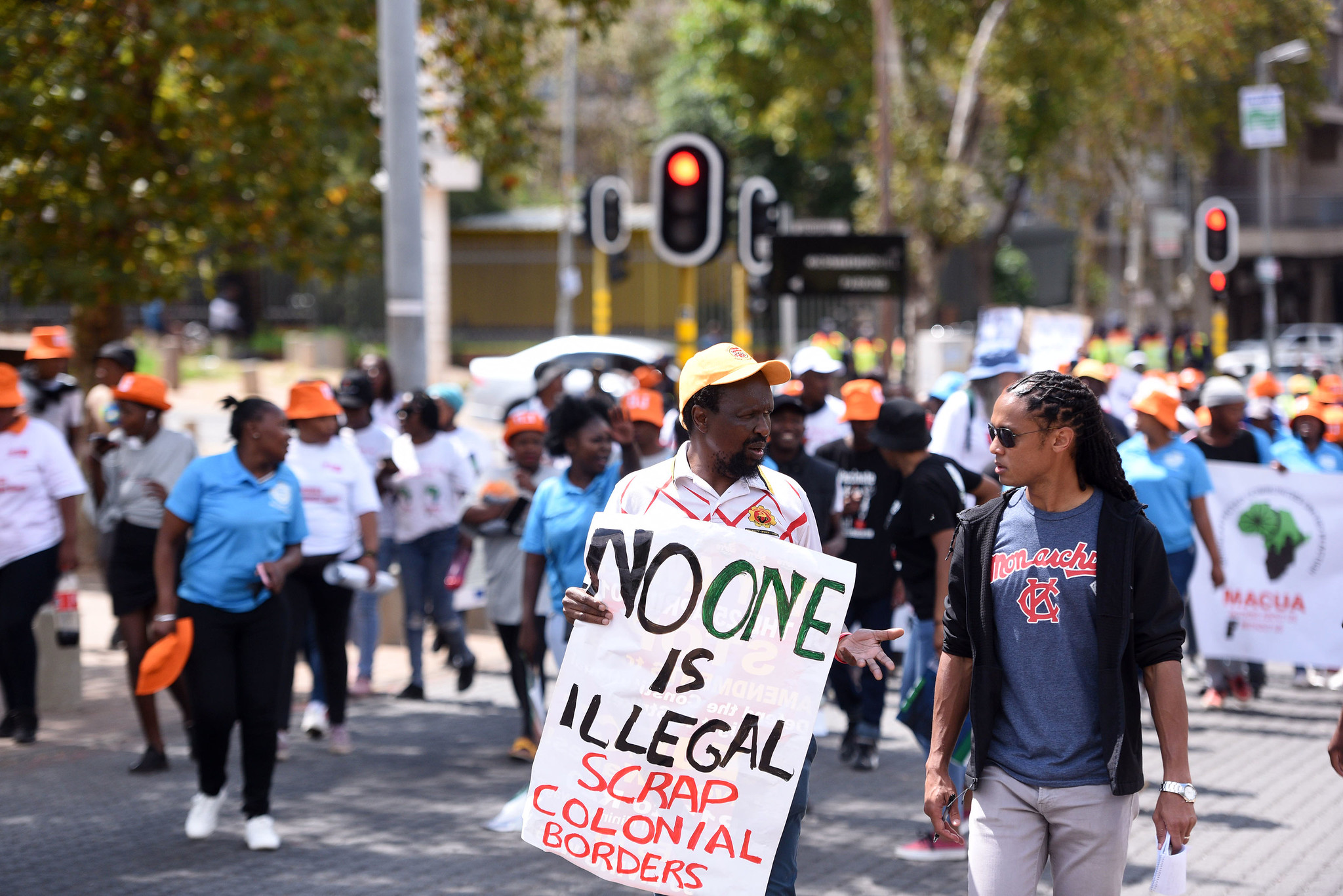The booklet aims to provide available facts about who has access to free healthcare in South Africa.


Anti xenophobia activists march to Hillbrow Police station on 26 March 2022. Photo: The Citizen/Nigel Sibanda
SECTION27 has launched an online publication titled: Free healthcare services in South Africa: A case for all mothers and children on 14 November 2022.
This booklet launched in collaboration with partner organisations aims to clarify laws regarding who has access to free health services in South Africa.
The centre held a webinar, with panelists who also provided facts on whether migrants burden the health care system, specifically in Gauteng.
The National Health Care ACT (NHA) states that all pregnant, lactating women and children under the age of six are entitled to free healthcare services – including people seeking asylum, undocumented foreign nationals and those affected by statelessness.
From May 2020, the Section27 advisory office received an influx of migrant pregnant women and children who complained they have been denied access to health care services. Some were required to pay medical fees to be assisted.
ALSO READ: The right of access to healthcare not limited to SA citizens – public health lawyer
The centre’s attorney, Sibusisiwe Ndlela, said they investigated these allegations and discovered that the Gauteng Department of Health had introduced new Policy Implementation Guidelines on Patient Administration and Revenue Management in 2020.
“What the policy provides is that all categories of migrant persons, except documented refugees, were now required to pay exorbitant amounts of money in order for them to access services at hospitals,” said Ndlela.
Ndlela said they found the new policy troubling, discriminatory and a contradiction of the National Health Care ACT.
As a result, the centre launched an application in the Johannesburg High Court against the MEC for Health in Gauteng, the Minister of Health, the Director General for Health and Charlotte Maxeke Academic Hospital.
The application is set to confirm access to free health care irrespective of nationality and to set aside the new policies that are “medically xenophobic” to pregnant women and children under six years.
Senior attorney at the Centre for Child Law, Liesl Muller, said the constitutional right to health care is applicable to everyone within the borders of South Africa, irregardless of their migrant status.
“In our practice, we find that there are a massive amount of children who suffer from the failings of the Department of Home Affairs in documenting them.
“The department and their policies have recently come under fire in the constitutional court. The court had to strike down the section in the Birth and Death registration Act which allows only mothers to register children born out of wedlock,” Muller said.
One of the panelists, Tasanya Nomaliso Chinsany, Medical Activity Manager at the Doctors Without Borders, laid out the consequences of limitation of access to health care services.
Chinsany emphasised that the effects of being rejected from health care services includes biological, psychological and social effects.
She said such patients develop anxiety, mental health strain and depression as their condition deteriorates. The lack of management of their condition becomes life-threatening emergencies as they are not managed properly because they cannot afford to pay.
“If we are sending people away from hospital we might not really have early detection of some of the dangerous notifiable conditions that we are looking for and that we are always doing surveillance for and that is an issue of public health concern,” said Chinsany.
She added that these factors lead to the migrants being reluctant to access health care services, in turn leading to poor health if they fail to access chronic medication.
Chinsany said this may lead to the spread of HIV and TB, which will affect the population.
NOW READ: African advocacy groups formulate plan to tackle health hardships of women
Download our app